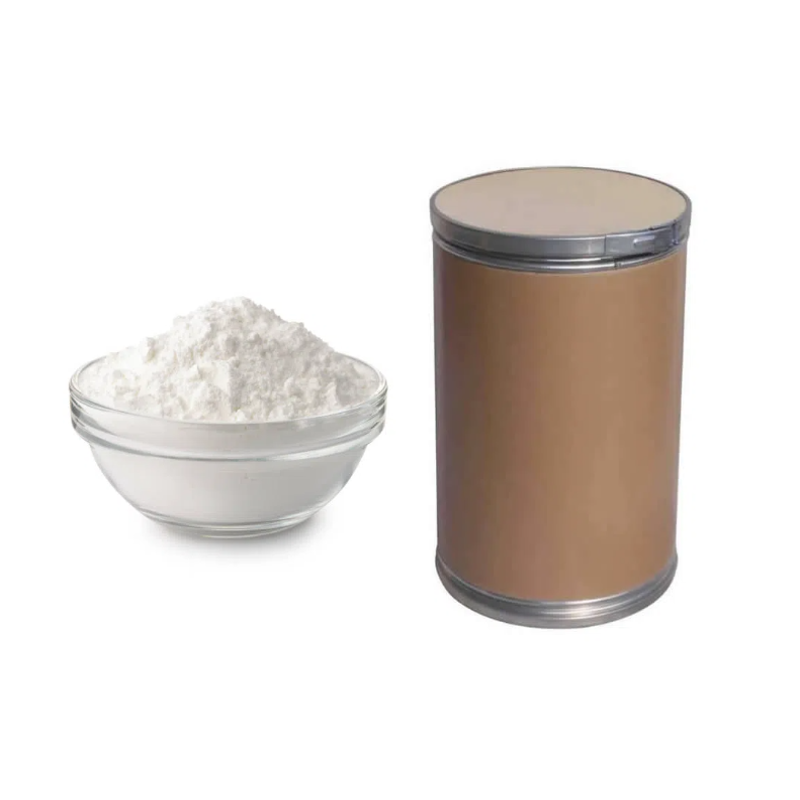-
Categories
-
Pharmaceutical Intermediates
-
Active Pharmaceutical Ingredients
-
Food Additives
- Industrial Coatings
- Agrochemicals
- Dyes and Pigments
- Surfactant
- Flavors and Fragrances
- Chemical Reagents
- Catalyst and Auxiliary
- Natural Products
- Inorganic Chemistry
-
Organic Chemistry
-
Biochemical Engineering
- Analytical Chemistry
-
Cosmetic Ingredient
- Water Treatment Chemical
-
Pharmaceutical Intermediates
Promotion
ECHEMI Mall
Wholesale
Weekly Price
Exhibition
News
-
Trade Service
▎WuXi AppTec content team editor
Novartis today announced positive results in its Phase 3 trial of its targeted radioligand therapy Pluvicto (lutetium Lu 177 vipivotide tetraxetan) in the treatment of patients with prostate-specific membrane antigen (PSMA)-positive metastatic castration-resistant prostate cancer (mCRPC) who have been treated
with androgen receptor pathway inhibitors (ARPIs).
。 The data showed that patients receiving Pluvicto achieved a statistically significant and clinically significant improvement
in radiographic progression-free survival (rPFS) compared with a cohort that changed the type of ARPI used.
The press release states that Pluvicto is the first radioligand therapy targeting PSMA to demonstrate clinical benefit in mCRPC patients receiving taxane chemotherapy
.
Novartis expects to discuss the regulatory review
with the FDA in 2023.
Prostate cancer is the second most commonly diagnosed malignancy in men worldwide
.
Most men have localized prostate cancer at the time of diagnosis, which can be treated
with surgery or radiation.
The growth of prostate cancer cells is androgen-dependent, so patients who are initially sensitive to androgen deprivation therapy (ADT) develop mCRPC in patients who still progress despite persistent ADT
.
It is estimated that 10-20% of prostate cancer patients will develop mCRPC
within 5-7 years of diagnosis.
The 5-year survival rate for patients with mCRPC is about 30%, and the overall survival in clinical trials is about 3 years, which is estimated to be smaller
in the real world.
Studies have shown that PSMA is overexpressed on the surface of more than 90% of prostate cancer cells (100~1000 times higher than normal prostate cells), and the expression level is higher
in cancer cells in patients with advanced and castration-resistant prostate cancer.
Image source: 123RF
Novartis' Pluvicto (former name: 177Lu-PSMA-617) links small molecule compounds that bind PSMA to radioactive isotopes
.
It binds to PSMA-expressing prostate cancer cells, and the radiant energy released by the radioisotope can damage tumor cells, triggering cell death
.
Because the radiation released by Pluvicto can only act at short distances, it limits the drug's damage
to surrounding healthy cells.
This therapy has previously received breakthrough therapy designation
from the FDA.
In March of this year,The FDA approved Pluvicto for the treatment of PSMA-positive mCRPC patients who have been treated
with taxane-based chemotherapy and androgen receptor signaling pathway inhibitors.
The PSMAfore trial is an open-label, multicenter Phase 3 trial designed to compare the efficacy and safety
of Pluvicto with ARPI-modified regimens in patients with PSMA-positive mCRPC.
A total of 469 patients were enrolled who experienced only one disease progression
after receiving second-generation ARPI.
The primary endpoint was rPFS, and the key secondary endpoint was overall survival
.
The analysis showed that the trial achieved the primary endpoint and that patients receiving Pluvicto achieved a statistically significant and clinically significant improvement
in rPFS compared with a cohort that changed the type of ARPI used.
Pluvicto's safety data is also consistent with previous trials, and no new safety issues
have been identified.
Dr.
Shreeram Aradhye, Novartis' Chief Medical Officer and President of Global Drug Development, noted that the announcement of positive top-line results from this Phase 3 trial shows that Pluvicto is the first radioligand therapy targeting PSMA to demonstrate clinical benefit in patients with mCRPC prior to taxane chemotherapy
.
Novartis will work with regulators to enable prostate cancer patients to receive this therapy
as soon as possible after diagnosis.
Resources:
[1] Novartis Pluvicto™ shows statistically significant and clinically meaningful radiographic progression-free survival benefit in patients with PSMA–positive metastatic castration-resistant prostate cancer.
Retrieved December 5, 2022 from style="margin-bottom: 0px;line-height: normal;">
Disclaimer: WuXi AppTec's content team focuses on global biomedical health research progress
.
This article is for informational purposes only, and the views expressed in this article do not represent the position of WuXi AppTec, nor do they represent WuXi AppTec's support or disapproval of the views
expressed herein.
This article is also not a treatment recommendation
.
For guidance on treatment options, go to a regular hospital
.







